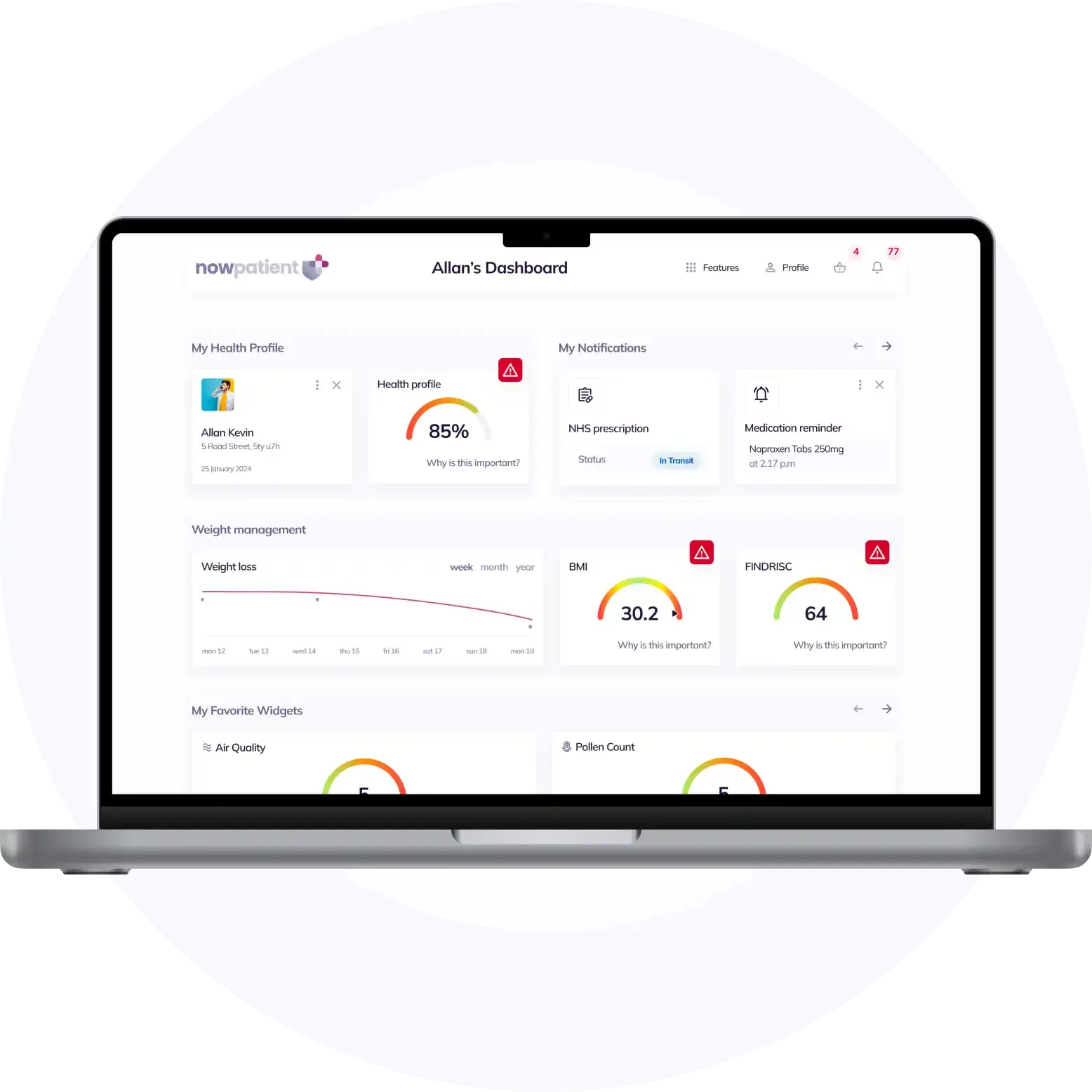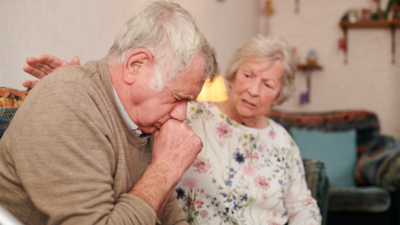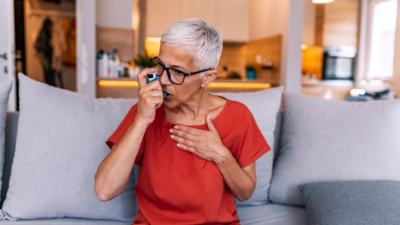The latest health advice about coronavirus (COVID-19)

It is important to stay informed about the latest health advice regarding COVID-19. In this blog post, we discuss some of the key points from recent medical advice and guidelines by the NHS in regard to coronavirus in the UK. There are no coronavirus (COVID-19) restrictions in the UK. There is no longer a legal requirement to self-isolate. However, it is advised that adults and children who feel unwell, have a high temperature or test positive stay at home if they can, and avoid contact with other people. Let’s take a look at the current advice if you are experiencing symptoms or have tested positive.
What are the symptoms of Covid-19?
- High temperature – you feel hot to touch your chest or back
- New continuous cough – this means coughing a lot for more than an hour, or 3 or more coughing episodes in 24 hours
- Loss or change to your sense of smell or taste – you have noticed you cannot smell or taste anything, or things smell or taste different to normal
Who is at higher risk from Covid-19
Specific groups of people are at the highest risk from Covid-19. This includes older people, pregnant women and people with health conditions.
These conditions include:
- Long-term lung conditions (such as severe asthma, COPD, bronchiectasis and cystic fibrosis)
- Long-term conditions affecting the heart or blood vessels (such as congenital heart disease, heart failure and peripheral arterial disease)
- Long-term kidney disease
- Long-term liver conditions (such as cirrhosis and hepatitis)
- Conditions affecting the brain or nerves (such as dementia, Parkinson’s disease, motor neurone disease, multiple sclerosis, epilepsy, cerebral palsy or stroke)
- Severe or multiple learning disabilities
- Down’s syndrome
- Diabetes
- Problems with the spleen or the spleen has been removed (splenectomy)
- Severely obese (a BMI of 40 or above)
- Severe mental conditions (such as schizophrenia and bipolar disorder)
- A condition or treatment that makes you more likely to get infections
- A condition care professionals advise puts you at high risk
I have symptoms of a respiratory infection, including COVID-19 but I have not taken a COVID-19 test. What should I do?
- Try to stay at home and avoid contact with other people
- If you have a high temperature or do not feel well enough to go to work or carry out normal activities, try to stay at home and avoid contact with other people, until you no longer have a high temperature (if you had one) or until you no longer feel unwell
- Avoid close contact with anyone who you know is at higher risk of becoming seriously unwell if they are infected with COVID-19 or other respiratory infections
- Opt to work from home if you can. If you are unable to work from home, talk to your employer
- Contact your healthcare provider and let them know about your symptoms if you have to attend a medical or dental appointment. You may wish to ask friends, family or neighbours to get food and other essentials for you
- If you leave your home while you have symptoms of a respiratory infection and you have a high temperature or feel unwell, avoid close contact with anyone who you know is at higher risk of becoming seriously unwell, especially those with a weakened immune system
How to reduce passing on infection?
- Wear a face covering made with multiple layers or a surgical face mask
- Avoiding crowded places
- Exercise outdoors in places where you will not have close contact with other people
- When you cough or sneeze cover your mouth
- Wash your hands frequently with soap and water for 20 seconds or use hand sanitiser after coughing, sneezing and blowing your nose and before you eat or handle food
- Avoid touching your face
How to reduce the spread of COVID-19 in your household?
- Try to keep your distance from the people you live with
- In communal areas wear a well-fitting face covering
- Opening windows and leaving them open to get fresh air for at least 10 minutes after you have left the room
- Handwashing regularly and covering your mouth and nose when coughing or sneezing
- Frequent cleaning of surfaces, such as door handles, remote controls, and shared areas such as kitchens and bathrooms
- Advise visitors to the home of your symptoms
I have a positive test for COVID-19. What should I do?
- Try to stay at home and avoid contact with other people. You can pass on the infection to others, even if you have no symptoms
- Avoid contact with other people for 5 days after the day you took your test, as you are no longer infectious. (After 3 days for children/young people and under 18’s)
- Try to work from home if you can. If you are unable to work from home, talk to your employer about the options available to you
- Contact your healthcare provider and let them know about your symptoms if you have to attend a medical or dental appointment
- You may wish to ask friends, family or neighbours to get food and other essentials for you
- Try to follow this advice until you feel well enough to resume normal activities and you no longer have a high temperature if you had one
- Avoid close contact with anyone who you know is at higher risk of becoming seriously unwell, especially those with a weakened immune system for up to 10 days
COVID-19 vaccinations for different age groups in the UK
Age 5-11 years
The NHS is offering coronavirus (COVID-19) vaccines to children aged 5 to 11 years. Please note this is only applicable to children who turned 5 years old by 31st August 2022.
Experts have advised that parents of all children aged 5 to 11 years should be offered the chance to have their child vaccinated.
Vaccination is particularly important for children who have health conditions that put them at high risk from COVID-19, as the benefits are greater.
Children will be given a Pfizer/BioNTech vaccine for their COVID-19 vaccination.
Age 12-17 years
The NHS is offering the COVID-19 vaccine to children and young people aged 12 to 17 years.
Age 18 years and over
The NHS is offering the COVID-19 vaccine to individuals 18 years and older.
Pregnancy and breastfeeding
It’s strongly recommended that you get vaccinated against coronavirus (COVID-19) if you’re pregnant or breastfeeding.
Seasonal boosters
Seasonal boosters are available on the NHS to the following groups:
- Residents in care homes
- Carers
- Front-line health and social care workers
- Adults 50 years old and over
- Children aged 5 years with increased risk
- Immunocompromised patients
What is the travel advice?
You need to show a negative COVID-19 test result if you are travelling to England from mainland China. You do not need to take a test when you arrive in the UK from any other country. You should check travel advice for any country you are travelling to.
More information
If you need help for a mental health crisis, emergency breakdown or further Covid-19 guidance seek immediate advice and assessment. Even during the Covid-19 pandemic, urgent mental health support and social care are available to adults and children around the clock. Find your local NHS helpline by searching for your postcode or home town in a new service finder.
See specific guidance and health advice for Northern Ireland, Scotland and Wales.
Sources
- NHS Coronavirus (COVID-19) Information
- Public Health England – GOV.UK – Coronavirus (COVID-19)Latest updates and guidance
- Foreign Travel Advice – GOV
Medical Disclaimer
NowPatient has taken all reasonable steps to ensure that all material is factually accurate, complete, and current. However, the knowledge and experience of a qualified healthcare professional should always be sought after instead of using the information in this page. Before taking any drug, you should always speak to your doctor or another qualified healthcare provider.
The information provided here about medications is subject to change and is not meant to include all uses, precautions, warnings, directions, drug interactions, allergic reactions, or negative effects. The absence of warnings or other information for a particular medication does not imply that the medication or medication combination is appropriate for all patients or for all possible purposes.
Related Articles
What is NowPatient
Telehealth and Online Pharmacy
NowPatient is a licensed online pharmacy and doctor service that is available around the world. Our service is FREE and packed with valuable features that can benefit your health such as medication reminders, educational blogs, medically approved symptoms checker, UK NHS online pharmacy, private treatment plans, Rx Advantage card, health conditions information, affordable medications options, genetic testing, home test kits, health risks, pollen meter, air quality monitor, weight loss plans, drug savings programs and lots more!

WHY WE BUILT NOWPATIENT
To improve the lives of everyone by making high-quality care accessible and convenient
We are here to improve lives. Our service gives you access to smart features and resources that can help empower you to take control of your health and improve your health outcomes. All this, in one place, for FREE. We strive to bring a fresh perspective to managing health. NowPatient can be accessed by downloading the App or using your web browser.
Download our app today

Can I trust NowPatient
Meet our medical team
We are a passionate group of clinicians and medical writers covering a broad range of specialities with experience operating in health systems in the United Kingdom & United States. Providing excellent care and advice is at the heart of everything we do. You can read more about our medical team by visiting the medical team page or learn more about how we curate content by visiting our editorial process



